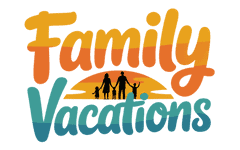Every country has its own quiet code of conduct, and in America, the unwritten rules are part of what makes daily life run so smoothly. You won’t find them posted anywhere, but they’re learned through side glances, polite nods, and years of shared habit — a kind of social shorthand everyone just seems to understand.
From line etiquette to small talk strategy, these customs say a lot about what Americans value most: respect, independence, and a touch of friendliness in almost every situation. They might be unspoken, but they’re followed faithfully — often without anyone realizing it.
Hold the door for the person behind you.
Chivalry isn’t dead; it’s alive in the simple act of holding a door open. This gesture transcends age and gender, showcasing kindness in everyday interactions.
It’s not just about courtesy; it’s a small way to brighten someone’s day. Whether it’s at the office or a local café, this act of politeness is a staple in American culture.
People often smile or express gratitude, reinforcing a sense of community. It’s a small effort that leaves a lasting impression.
Leave one empty seat between strangers when possible.
Personal space is valued highly in American society, and this extends to seating arrangements. If there’s room, leaving a buffer seat is a common courtesy.
This practice respects individual comfort zones, preventing awkward closeness in public spaces. The empty seat acts as a quiet acknowledgment of one’s personal bubble.
It’s a silent agreement that makes shared spaces more comfortable for everyone. In crowded places, this rule may be bent, but the intent remains.
Don’t talk politics with people you’ve just met.
Discussing politics can quickly turn a conversation sour, especially among strangers. In America, it’s wise to avoid this topic unless you’re certain of mutual perspectives.
New acquaintances are often treated with diplomacy, focusing on neutral topics. This helps keep interactions pleasant and uncontentious.
It’s not about evasion but about maintaining harmony in diverse groups. Conversations are safer and more enjoyable without diving into divisive subjects.
Tip your server — even for takeout, sometimes.
Gratitude in the form of a tip is deeply embedded in American dining culture. Even for takeout, a small tip acknowledges the effort behind the service.
Tipping is more than a monetary exchange; it’s a cultural tradition of appreciation. Servers and staff rely on these tips to supplement their income.
While the amount may vary, the sentiment remains consistent. It’s a gesture that reinforces the value of good service.
Say “bless you” when someone sneezes.
Sneezing in public often elicits the reflexive response of “bless you.” This phrase has become an automatic courtesy in American culture.
Rooted in tradition, it acknowledges someone’s sneeze with a touch of warmth. Some say it wards off evil; others see it as a polite recognition.
Regardless of its origins, it’s a small interaction that connects people. This phrase has stood the test of time, linking generations through simple kindness.
Pretend not to notice someone’s headphones — it means “don’t talk.”
Headphones serve as a universal “do not disturb” sign in public spaces. In America, this silent cue is respected more often than not.
Whether on public transport or at work, headphones signal a desire for solitude. It’s a subtle way to avoid unwanted conversations without saying a word.
Respect for personal time and space is paramount, and this unwritten rule helps maintain it. It’s about understanding when to engage and when to refrain.
Wave when another driver lets you merge.
Merging into traffic can be stressful, but a simple wave can ease the tension. This gesture of gratitude acknowledges the kindness of another driver.
In America, it’s a common way to say “thank you” without words. It’s a small act that fosters goodwill on the road.
Acknowledging a driver’s patience or generosity is a shared understanding. A friendly wave can make the driving experience more pleasant for everyone.
Small talk about the weather is always safe.
Weather talk is the go-to icebreaker for Americans. It’s a topic as neutral as it is universal, perfect for easing into conversations.
Whether it’s scorching heat or unexpected rain, discussing the weather is relatable. It’s a conversation starter that rarely leads to disagreement.
This practice keeps small talk light and comfortable, offering common ground for strangers. It’s a safe bet in any social setting.
Avoid sitting too close in an empty theater or café.
In a near-empty space, choosing a seat away from others is the norm. This respects personal space and avoids unnecessary interactions.
Americans appreciate a bit of distance, especially in uncrowded venues. It’s a subtle way to acknowledge and respect each other’s privacy.
This unwritten rule helps maintain comfort in communal areas. It’s about fostering a relaxed atmosphere without encroachment.
Keep your voice down in public places.
Volume control is crucial in shared settings. Speaking softly in public reflects consideration for others trying to enjoy a peaceful environment.
In places like libraries or public transport, loud voices can disrupt the calm. Maintaining a lower volume is a silent courtesy to those around.
This practice underscores the importance of shared respect. It’s about creating an environment where everyone can coexist comfortably.
Complimenting someone’s dog is always acceptable conversation.
Dog lovers know the joy of receiving compliments about their furry friends. In America, praising a dog is a surefire way to start a friendly chat.
This simple act brings smiles and opens the door to lighthearted exchanges. It’s a shared appreciation that transcends age and background.
Such compliments serve as easy conversation starters, connecting people through mutual admiration. It’s a delightful way to engage with strangers.

